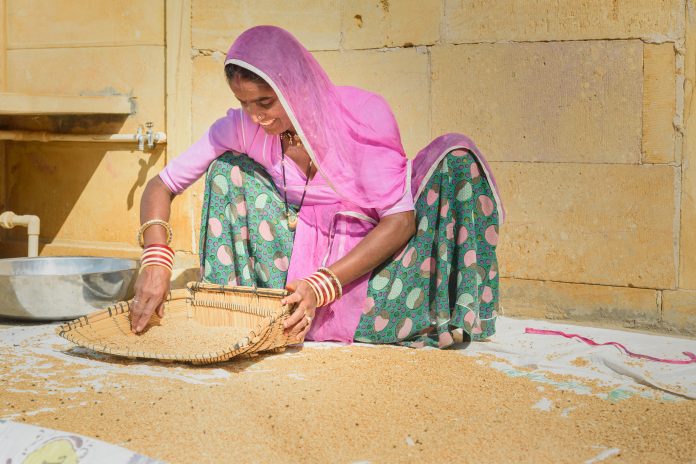The study, published in Economia Politica, finds that the Indian COVID lockdown led to women facing greater food insecurity – due to fluctuations in food prices and pre-existing social issues
When Prime Minister Modi issued the national lockdown, 24 March, 2020 – no-one in the country was prepared for it. Daily wage workers found themselves walking on foot for immense distances, in the panicked evacuation from cities. Several minorities lost out on their expected income, making food more inaccessible.
Then, agricultural supply chains became disrupted. This led to a hike in prices for non-essential foods, the type of foods that create a diverse and nutritional diet.
Here, the Tata-Cornell Institute for Agriculture and Nutrition (TCI) look at what is going on and why women are taking this hit.
‘COVID-19 has further exacerbated the situation’, says economist
“Women’s diets were lacking in diverse foods even before the pandemic, but COVID-19 has further exacerbated the situation,” said Soumya Gupta, a research economist at TCI who coauthored the study along with Prabhu Pingali, TCI director; Mathew Abraham, assistant director; and consultant Payal Seth.
“Any policies addressing the impact of the pandemic on nutritional outcomes must do so through a gendered lens that reflects the specific, and often persistent, vulnerabilities faced by women.”
90% of people had less food during lockdown
The TCI team looked at food expenditures, dietary diversity and other nutrition indicators at the national, state and district levels in the states of Uttar Pradesh, Bihar and Odisha.
They found that food expenditures declined during the lockdown, especially in less developed districts.
It turns out that 90% of survey respondents reported having less food, while 95% said they consumed fewer types of food. The largest drop in food expenditures was for micronutrient-rich fresh and dried fruits, as well as animal products such as meat, fish and eggs.
The unequal burden on women was also caused in part due to the closure of India’s aanganwadi centres during the lockdown.
These centres, which provide take-home rations and hot cooked meals to nursing and expecting mothers, are an important source of nutrition for women and children. According to the data, 72% of eligible households lost access to those services during the pandemic.
‘Threat to their children too’, says economist
Gupta further commented: “The decline in women’s diet diversity combined with a likely decrease in quantities consumed points to a greater risk for micronutrient malnutrition as compared to before the pandemic.
“Due to the spillover effects of maternal malnutrition, that risk poses a threat not only to women’s productivity and well-being, but also that of their children.”











